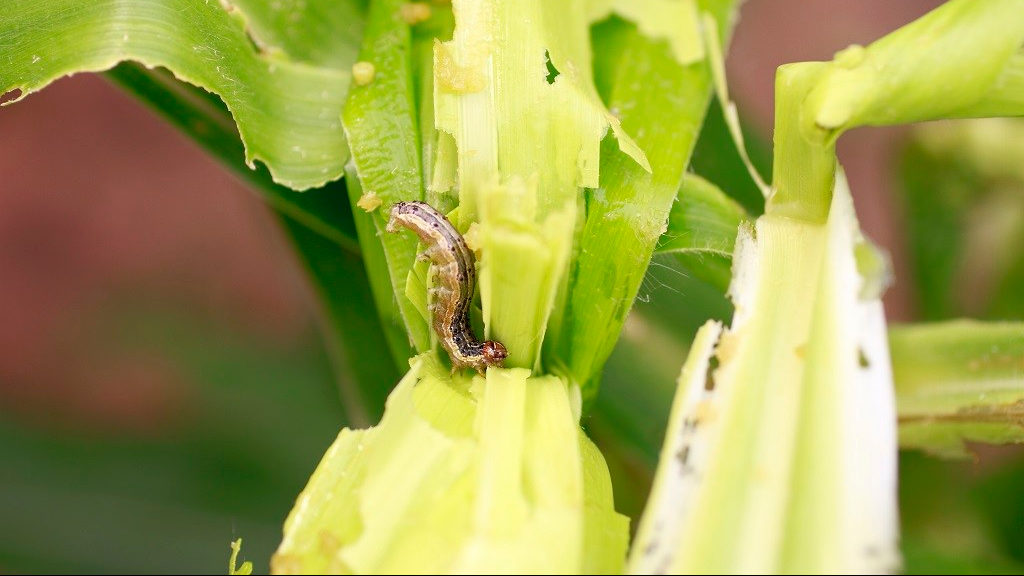CAB Reviews hits 1000 articles with fall armyworm paper
Allan Hruska of the Food and Agriculture Organization has examined published studies to see which management options are most likely to help smallholders tackle the devastating crop pest fall armyworm
App-based agriculture for a tech-savvy farmer
Agriculture in Sub-Saharan Africa is undergoing a digital revolution bought about through the advancement and increasing availability of mobile technologies. Improved affordability has placed mobile devices in the hands of more African’s than ever before, with 444 million subscribed users in 2017. Take Tanzania for example where the average cost of mobile phones has fallen…
‘Cracking the code’ of woody weed spread with machine-learnt algorithms
A scientific tool which has its principles in early ‘computers’ such as the German WW2 Enigma machine – used to convey secret commercial, diplomatic and military communication – is helping to map the fractional cover of the woody weed Prosopis juliflora across the Afar Region of Ethiopia. PhD Candidate Hailu Shiferaw from Addis Ababa University,…
Can a ‘diet’ of digital data really help feed the world?
Last week (29 January 2019) CABI was awarded a $1.49 million grant from the Gates Foundation to work with them to help increase food security in India and Ethiopia through better access to data on soil health, agronomy and fertilizers. In this blog Communications Manager Wayne Coles looks at whether or not the use of…
CABI and IFDC join forces to get soybean film out to farmers in Northern Ghana
By Duncan Sones – from an article which originally appeared on the Africa Soil Health Consortium (ASHC) website Farmers in Northern Ghana are reaping the benefit of village-based film screenings to inform them about agricultural practices. Film screenings are growing in popularity amongst farmers and extension projects, as the technique for sharing information. This is…
Plant clinics, pests and pads of paper
“We’ve arrived everyone. Off the bus”. Ten journalists, myself and five other CABI staff disembark eager to write our own stories on this, a landmark day, for one of CABI’s latest projects – the Pest Risk Information SErvice (PRISE). PRISE, led by CABI and funded by the UK Space Agency’s International Partnership Programme (IPP), uses…
How technology can change the way farming is conducted
The population of the Global South is growing rapidly. As populations grow so do requirements for food and nutrition and improvements in agricultural productivity and sustainability are essential conditions for development to take place. Some regions of the Global South have seen greater success than others in terms of agricultural growth, with low agricultural productivity attributed to lack of knowledge of up-to-date technologies and practices, as well as issues such as climate change. In recent years, to face these challenges, there has been growing activity around use of digital technology for agricultural and rural development in the Global South, to address knowledge gaps, and to establish the building blocks for new rural services.
Unmanned aerial vehicles – Agriculture’s “game of drones”
Unmanned aerial vehicles (UAV’s), more commonly referred to as drones, are not new technology. They have been used commercially since the early 1980’s, but in recent year’s practical application of this technology has grown rapidly across a number of industries, with agriculture playing a key role in this expansion. With the global population expected to…
World Environment Day 2017 – “Connecting People to Nature”
First held in 1974, World Environment Day (WED) is considered to be the largest global event for positive environmental action, with participation from over 143 countries. It takes place on 5th June each year and is a flagship campaign for driving change and raising awareness on emerging environmental issues, from climate change and wildlife crime, to resource consumption and marine pollution. This year's host country is Canada and the chosen theme is 'Connecting People to…




Do current e-book models help or hinder the migration from print to online?
December 7, 2010
Guest Author
No Comments